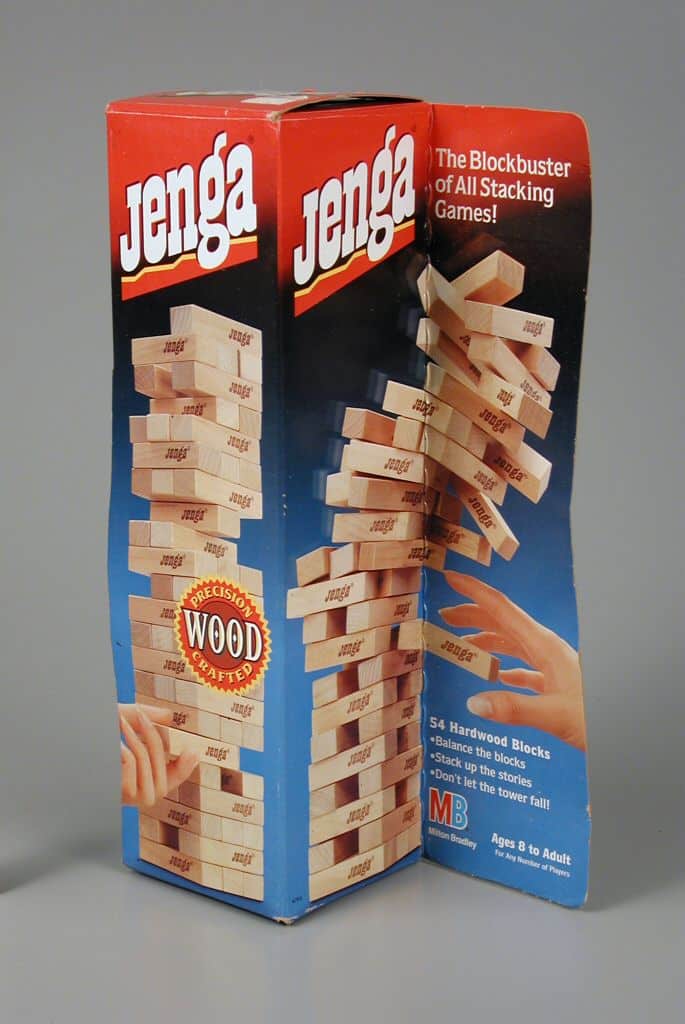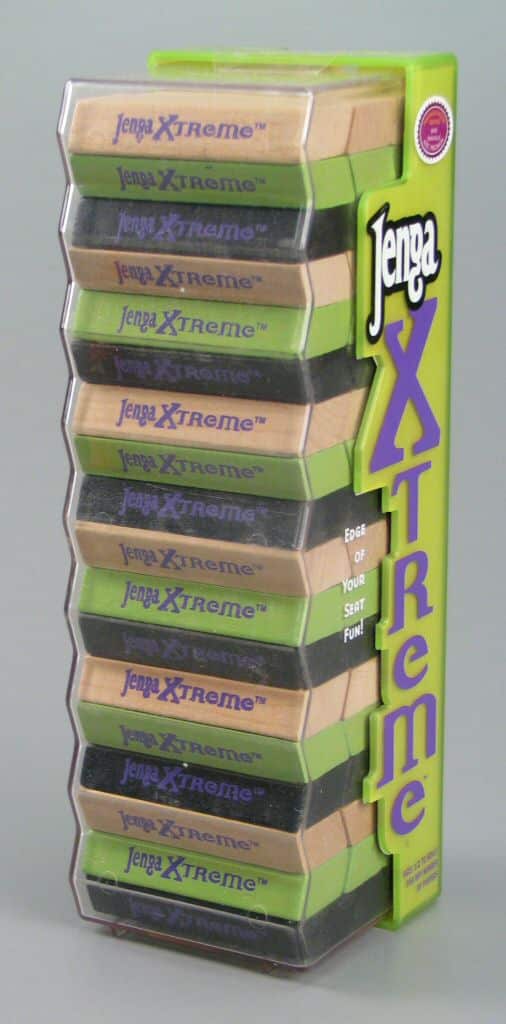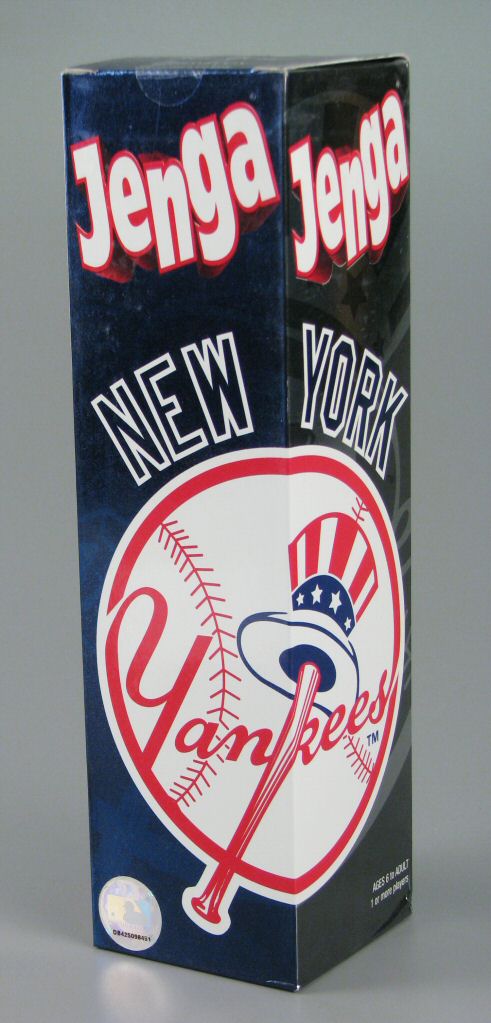
What’s in a name, anyway? From the Ouija board to Twister, from Rubik’s Cube to Pictureka, toy and game designers often seek unique and memorable names, or names that cleverly describe both the thing and the play. “Jenga” is one clever game name. While it doesn’t mean anything else besides the game in English, the word “jenga” is based on “to build” in Swahili. In the early 1990s the promoters stressed Jenga’s name in this advertisement. Kids and adults alike have enjoyed the game for more than 20 years, and it has remained popular−sometimes second only to Monopoly in terms of sales.

Jenga is simple to play. To begin, the 54 blocks are stacked with each level consisting of three blocks that rest across the layer beneath. A player removes one block at a time and places it on the top of the stack in the same pattern. The player who topples the tower loses. A tip: shouting “Jenga!” at any given moment may make an opponent laugh and upset the tower. In this video, two girls demonstrate the finer points of Jenga with a giant-sized game.
Jenga’s first commercial and still most popular form was invented in the early 1970s by Englishwoman Leslie Scott. It grew out of a childhood game using wooden building blocks purchased from a local wood craftsman in Ghana. She brought the game to England in the 1980s, taking out a copyright on the game rules and trademarking the now famously recognized name. Jenga is promoted in the United States and some 50 other countries by Pokonobe Associates, a U.S.-based partnership, through Hasbro and other licensees. Pokonobe partner Robert Grebler was a champion Jenga player and, according to Hasbro, still holds the world record of 40 and 2/3 levels.

To expand our collection, he kindly donated 29 different examples, representing many varieties sold in various markets over the more than 20 years that Jenga has been available throughout the world. Included in the gift are American versions, from the classic wood game to “Throw and Go” variations which add a die and colored blocks to increase the game’s difficulty. The New York Yankees game is just one promotional example. Jenga is also very popular in Japan, where many different versions are available. And who could resist the Kit Kat Jenga-complete with a chocolate egg and a Kit Kat bar-marketed to workers for their break-time enjoyment.
In many ways it seems like “Jenga” is the perfect name, and many players believe it is the perfect game. If you have stories of marathon Jenga games or an early Jenga memory to share, I hope you’ll take a moment to register here on the Play Stuff blog and tell us all about it!


